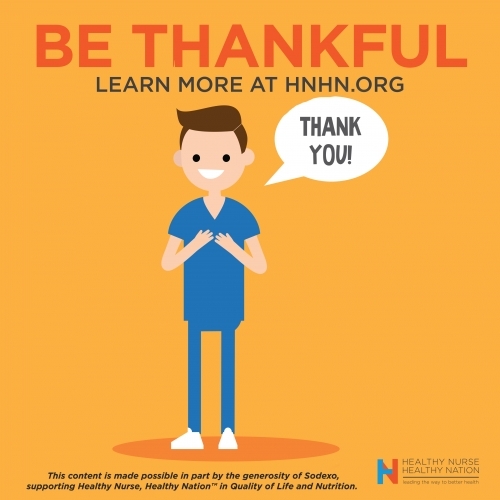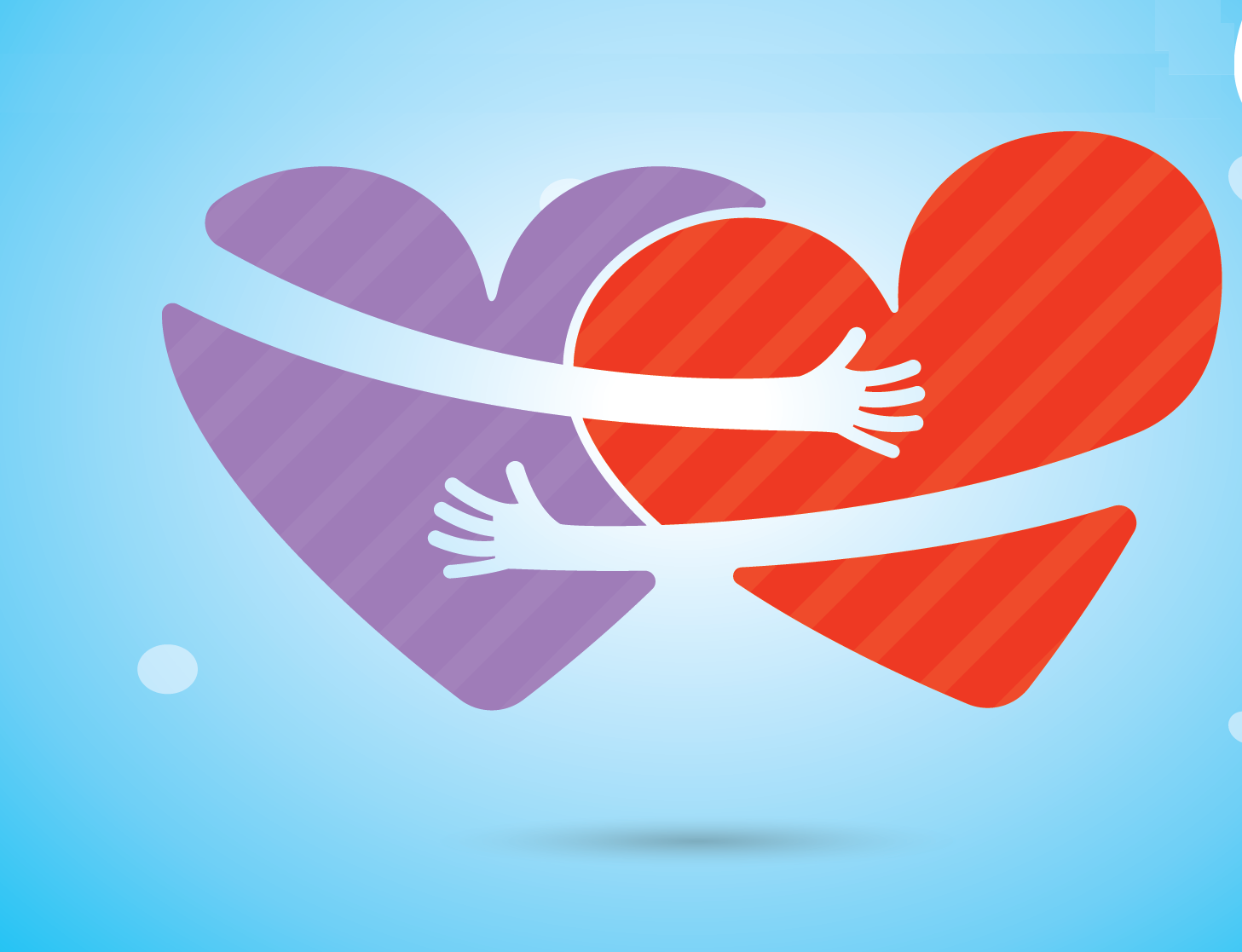Healthy Nurse, Healthy Nation™ Blog - Being Thankful Can Help You Become Happier – And Healthier
Published
5 ways being grateful can improve your outlook and well-being.
 It’s easy to feel grateful when your life is going well. But, did you know that actively focusing on being thankful can help you become happier? Research suggests that spending time thinking of things you’re grateful for can also lead to better health.
It’s easy to feel grateful when your life is going well. But, did you know that actively focusing on being thankful can help you become happier? Research suggests that spending time thinking of things you’re grateful for can also lead to better health.Here are just a few of the benefits you may reap from saying “thank you” and truly meaning it:
Better sleep: People who spent 15 minutes writing about what they were grateful for right before bed, slept more soundly and didn’t wake up with those worrisome thoughts that tend to keep people from falling asleep, suggests a study published in Applied Psychology: Health and Well-Being.
A stronger immune system: Research from the Universities of both Kentucky and Utah reported that stressed-out law students who considered themselves to be optimistic and grateful, had more disease-fighting cells in their bodies than those who didn’t identify with those traits.
More empathy: Although nurses are known for their compassion, being grateful can make them even more empathetic. A study from the University of Kentucky suggests that thankful people show more sensitivity and empathy toward others.
Enduring self-esteem: Multiple studies surmise a link between being grateful and social comparison. So, a person who regularly gives thanks for what they have is less likely to compare their circumstances to others. Plus, a study published in the Journal of Applied Sport Psychology suggests that athletes who are grateful have a stronger self-esteem.
Rock-solid relationships: For a study published in Emotion, researchers divided participants into three groups. The first group was asked to pay attention to what they did for three weeks. The second group was tasked with noticing what they were grateful for in a friendship or relationship during that time period. And the third group was asked to not only think of what they were grateful for, but to express it to the person. At the end of the experiment, the people in the third group, who expressed gratitude to the people in their lives, had the strongest relationships.
Ready to get grateful and reap these benefits? What are you thankful for today? Who can you say “thank you” to? Tell us in our discussion or in our private Facebook group.
Find this helpful? Share this post with social media icons on this page and follow us on Facebook, Instagram, and Twitter. Tag us and #HealthyNurse you know.
 Have you joined Healthy Nurse, Healthy Nation (HNHN) yet? Join us today!
Have you joined Healthy Nurse, Healthy Nation (HNHN) yet? Join us today! Updated 5/5/22
Source List:
Andrews, L. W. (2011, November 09). How gratitude helps you sleep at night. Retrieved September 26, 2017.
Heubeck, E. (n.d.). Boost your health with a dose of gratitude. Retrieved September 26, 2017.
Gratitude enhances change in athletes' self-esteem: The moderating role of trust in coach. (n.d.). Retrieved September 26, 2017.
Greenberg, M. (2015, November 22). How gratitude leads to a happier life. Retrieved September 23, 2017.
Lambert, N. M. (2011). Expressing gratitude to a partner leads to more relationship maintenance behavior. Retrieved September 26, 2017.
Morin, A. (2015, April 21). 7 scientifically proven benefits of gratitude that will motivate you to give thanks year-round. Retrieved September 26, 2017.
Dunn, L. (2015, Nov. 22). Be thankful: Science says gratitude is good for your health. Retrieved May 5, 2022.
Blog Quality of Life
11/13/2017 8:45am CST



Post a Comment or Question